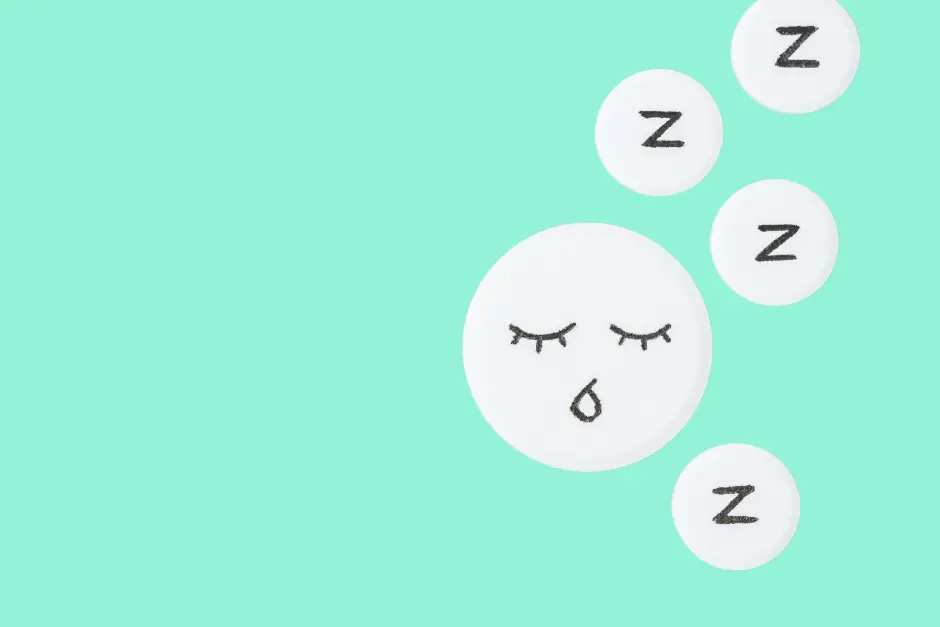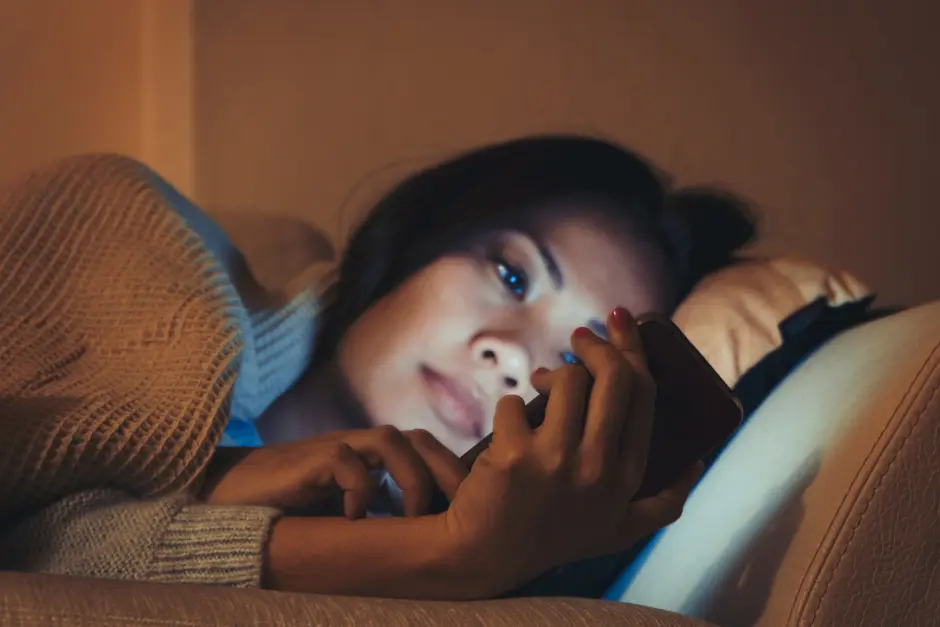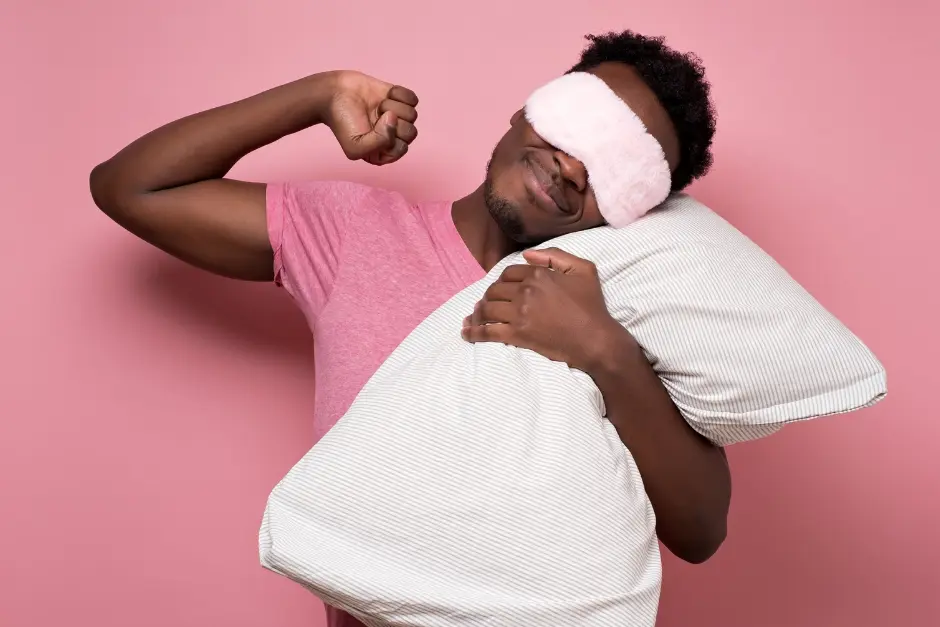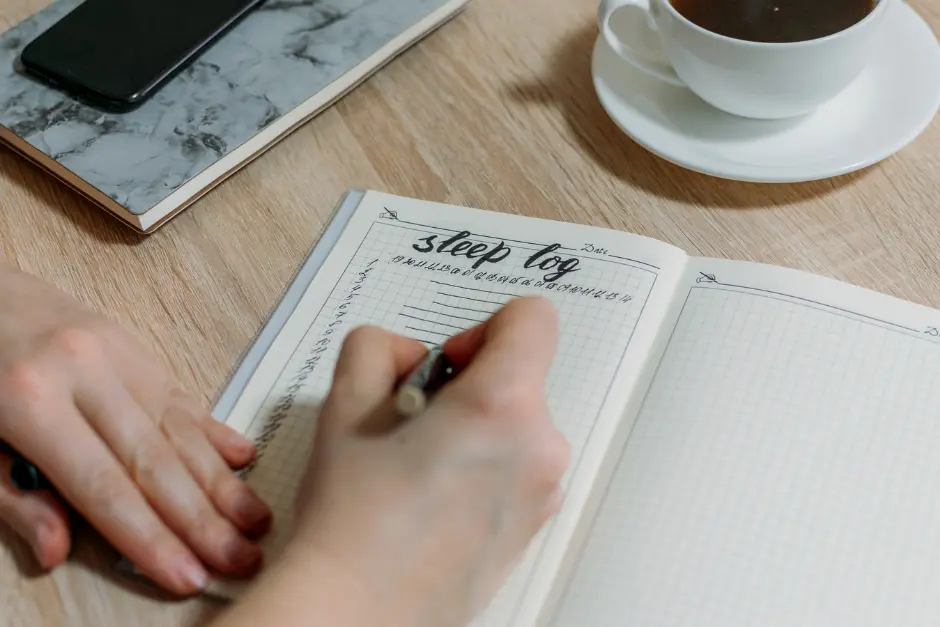
20 ways to get a good night’s sleep
The pandemic has wreaked havoc with our sleep. From a lack of routine to the worries and uncertainties it has brought, many of us are struggling to sleep. Sleep is so important for positive mental health and to protect our immune system. So, how can we make sure we get our forty-winks? We’ve gathered some top tips on how you can improve your sleep habits.
1) Establish a routine
Try getting up at the same time every day (yes, even weekends, sorry). Structuring your day with set times for sleeping and waking will help to set an internal body clock and in turn, reduce your sleep problems.
2) Cut screen time
Switch off devices a couple of hours before bed – the bright light it emits means it’ll take you longer to drift off. There are some great apps that can help to block the ‘blue light’ it emits (the worst type of light preventing you from relaxing).

3) Use Bedtime Mode
Talking of phones, make sure you use bedtime mode, or turn your phone to silent, put it upside down and place it away from you. Flashing and pinging are not helpful when you’re trying to sleep!
4) Watch how much you drink
Reduce liquid intake a couple of hours before bed. Regular toilet trips are a sure-fire way to ruin your valuable ZZZ’s!
5) Write your worries down
Worries often pop up at the most inconvenient times, like when everything goes quiet close to bedtime and they then keep you awake at night. There are several techniques that allow you to stay on top of your anxiety, however, if you find yourself feeling blue before bedtime, journaling might be the best solution. Before bed, write all your worries down or make a to-do list for the next day so you can feel organised.
6) Take regular exercise
Regular exercise helps to ease anxiety and improve symptoms of insomnia and other sleep disorders. Morning workouts tend to have the best effect but if that’s not possible for you, just make sure you’re not exercising late in the evenings when you should be winding down and relaxing ready for bedtime.
7) Create a sleep sanctuary
Make your room a zen-like environment. It can’t be fully relaxing if you have piles of laundry and dirty plates in your room! Buy comfortable bedding – good pillows are essential when it comes to healthy sleep.
8) Make sure your room is at the right temperature
The ideal room temperature for sleeping is 20 degrees. Invest in a fan or turn up the heating to achieve the optimum temperature for a good night’s sleep.
9) Cut down on comfort food
Many of us have turned to comfort foods this year. Whilst they make us feel better at the time, these foods which tend to be high in sugar and refined carbohydrates make it more difficult to fall asleep. Try to stick to healthier foods, your waistline will thank you too! Food that can help you sleep include almonds, fatty fish and bananas.
10) Try a calming or sleep app
There’s a raft of options to choose from but some of our favourite apps which can help are Headspace (for meditation and ‘sleepcasts’) Calm (for sleep stories) and Sleep Cycle (which tracks your sleep patterns and provides tips).
11) Try essential oils
It’s not a myth, lavender genuinely does help improve sleep quality. Try spraying some on your pillow before bed or using some lavender oil in a relaxing warm bath pre-bedtime.
12) Get plenty of light during the day
Getting outside into natural light as much as possible and streaming natural light into your room actually helps your body clock. A blast of early morning light (the closer to the time you wake up the better) is extra important as it wakes you up properly first thing. In turn, you should be able to drift off more easily come night-time.

13) Make your room as dark as possible
Bright light at night can also trick your body clock into thinking it’s daytime. So, close those curtains tightly and make sure your screens are hidden. If you struggle to block the light, try a well-fitted eye mask.
14) Drink a herbal tea
Chamomile tea is a very popular sleep-inducing drink. It contains antioxidants that bind to receptors in your brain that decrease anxiety and help you sleep. Just don’t have too much too late!
15) Try this breathing exercise…
Breathing from your stomach rather than your chest can help to reduce your stress levels and relax you. Lay down and close your eyes with one hand on your chest and one on your stomach. Breathe in through your nose and out through your mouth. The hand on your chest should stay still but the hand on your stomach should rise as you breathe in and fall as you exhale. Exhale slowly and push out as much air as you can.
16) Avoid napping
It’s best to aim for 7-9 hours of sleep and no napping. Yes, we know it’s super tempting when you feel sleepy during the day but try to resist – it’ll help in the long run. If you really must have a nap, make sure it’s for no longer than 20 minutes and you never have one past early afternoon.
17) Avoid caffeine and alcohol
We’re sure you’re already aware you shouldn’t be drinking caffeine too late in the day. Try to have your last cup around lunchtime to reduce any effects in the evening. As for alcohol, many people think it can help you drift off to sleep. That may be the case but when have you ever woken up after a night of drinking feeling like you’ve had a good sleep?! It disturbs our sleep patterns so try to avoid drinking alcohol late in the evening.
18) Block disturbing noise
If you live in a noisy area, you may likely have trouble sleeping. Invest in a good pair of earplugs to keep things peaceful. If you want to fall asleep to calming music, make sure you set it to automatically turn off after an hour – you don’t want it waking you up later in the night.

19) Keep a sleep diary
Keeping a sleep diary is a great way to track your sleep patterns and habits. You may start to notice negative patterns that can be corrected by your own behaviour. It’s also a great way to hold yourself to account and you’ll become more diligent about sticking to the tips in this article!
20) Distract yourself
You’ve tried all of the above tips but you’re still laying there wide awake. What now? Don’t force it! Read a book or pop some chilled music on to make you feel tired. Keep the lights dim and don’t you dare reach for your phone!




